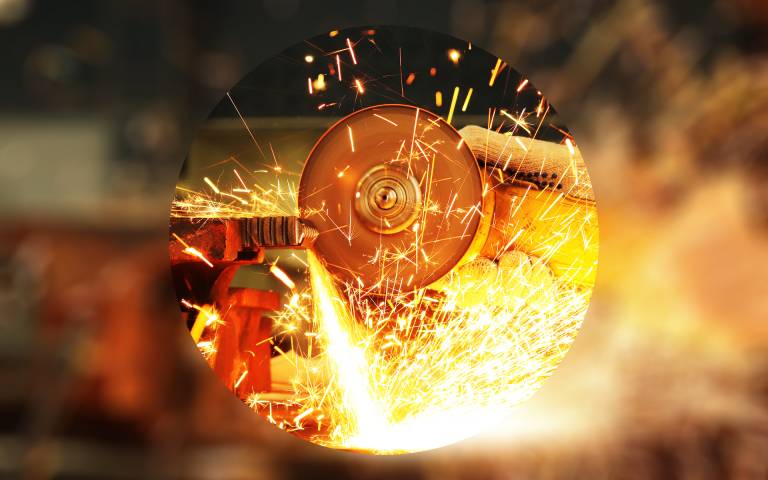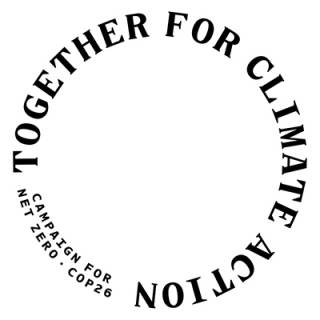Decarbonising European industry and steel in the global context
08 July 2021, 9:00 am–11:30 am

Options and Strategies from recent research. Supported by results from the INNOPATHS Programme.
This event is free.
Event Information
Open to
- All
Availability
- Yes
Cost
- Free
Organiser
-
UCL BSEER – Professional Services BSEER
The climate goals agreed in the Paris Agreement, and the need for ‘net zero’ emissions to stabilise the atmosphere, cannot be achieved without decarbonising energy-intensive industry. At the same time, in the UK and EU, many of these sectors, (first and foremost, the steel sector which accounts for over 5% of global greenhouse gas emissions), are struggling in a fiercely competitive, international business environment. In July, the EU will announce its proposals for decarbonising European industry, including a border carbon adjustment.
This webinar, a final outreach event of the major INNOPATHS research programme, will present results of substantial research on the potential and strategies for decarbonising energy intensive industries in Europe. It will also offer a detailed look at scenarios for steel, including the role of recycling and rapidly growing initiatives by some continental steel producers to develop novel, hydrogen-based steel production, and offer insights into the forthcoming EU “Fit for 55” package. A concluding panel will debate the prospects and strategies for the industry in the UK and EU.
Agenda
09:00 - Welcome from the Chair
Michael Grubb, Professor of Energy and Climate Change, UCL
Opening Address: the Clean Energy Ministerial’s Industrial Deep Decarbonisation Initiative
Dan Dorner Head of Clean Energy Ministerial Secretariat, Paris
Industry decarbonisation overview from the Horizon 2020 project, INNOPATHS
09:30 - Introduction to INNOPATHS, ‘Innovation Pathways, Strategies and Policies for the Low-Carbon Transition in Europe’
Paul Ekins, Professor of Resources and Environment Policy, UCL
09:35 - The CO2 reduction potential for the European industry via direct electrification
Silvia Madeddu, PIK Germany
10:00 - Insight from INNOPATHS case studies
Paul Ekins, Professor of Resources and Environment Policy, UCL
10:15 - Q&A
The Steel Industry
10:30 - The European outlook for steel – current initiatives and prospects for deep decarbonisation
Lars J. Nilsson, Professor of Environmental and Energy Systems, Lund University
10:50 - Panel Discussion, chaired by Michael Grubb
- EU policy - pricing and CBAM proposals - Milan Elkerbout, CEPS Energy, Resources and Climate Change Unit
- The role of circular economy - Matthew Winning, Research Fellow, UCL
- Respondent - Silvia Maddedu, PIK Germany
11:10 - Q&A
11:25 - Closing remarks from the chair
About the speakers
Dan Dorner, Clean Energy Ministerial
Dan is the Head of the Clean Energy Ministerial (CEM) Secretariat team based in Paris. He took up his duties on 11 May 2020. Prior to this, he served as the Head of International Energy for the Department for Business, Energy and Industrial Strategy, United Kingdom. He was the senior official advising UK ministers on bilateral/multilateral energy policy and leads a team tasked with advancing their international energy objectives. Dan represented the UK at a range of international energy fora, including the G7 and G20, CEM, IEA and IRENA. He also led the UK government’s strategic relationship with several multinational energy companies.
Dan was a Senior Energy Advisor at the International Energy Agency (IEA) from 2011-2017, where he was a lead author of its World Energy Outlook, led its energy access programme, and was the Executive Director’s Sherpa to the United Nations. He has also held a range of international energy and economic roles at the UK Treasury.
Paul Ekins, UCL Institute for Sustainable Resources
Paul Ekins is Professor of Resources and Environment Policy at the Institute for Sustainable Resources at University College London. His academic work focuses on the conditions and policies for achieving an environmentally sustainable economy, and he is an authority on a number of areas of energy-environment-economy interaction and environmental policy.
Michael Grubb, UCL Institute for Sustainable Resources
Michael Grubb is Professor of Energy and Climate Change and Deputy Director of the Institute for Sustainable Resources at University College London. His research experience is based broadly around energy innovation, integration of renewable electricity sources into electricity systems, carbon pricing and emissions trading systems and international climate change responses.
Silvia Maddedu, Potsdam Institute for Climate Impact Research
Silvia Madeddu is a postdoctoral researcher specialised on decarbonisation strategies for energy-intensive industries. She holds a PhD in Materials Science and Engineering from The University of Sheffield (United Kingdom). After completing her PhD, she worked as Chief Scientist for the development of new Carbon Capture and Utilisation (CCU) technologies. In 2018, she joined the Global Energy Systems modelling group at PIK, where she has focused on the analysis of the electrification potential in industry and in the energy transition at european and global level. Her areas of expertise are energy use and materials demand in industrial processes, innovation and economic opportunities arising from the industrial energy transition.
Lars J. Nilsson, Lund University
Lars Nilsson is Head of Department and Professor at the Department of Technology and Society at Lund University, Faculty of Engineering. He has a MSc in Engineering Physics and a PhD in Environmental and Energy Systems Studies. Recent research has been on different aspects of low carbon transition policy strategies and governance. A topical field of research is low carbon transitions in the basic materials industry and co-evolution with energy system transitions in the perspective of circular economy, industrial development and innovation policy strategies. He is currently the Coordinating Lead Author for Chapter 11 on Industry in the IPCC 6th Assessment Report. Lars is also member of the International Advisory Council to the Wuppertal Institute and the Advisory Committee to the Initiative for Climate Action Transparency, (ICAT under UNOPS). He teaches in energy systems, climate science and politics, energy policy and governance at the Faculty of Engineering.
The INNOPATHS project received funding from the European Union’s Horizon 2020 research and innovation programme under Grant Agreement No 730403
Image by Dmitrii Bardadim from Pixabay
 Close
Close


